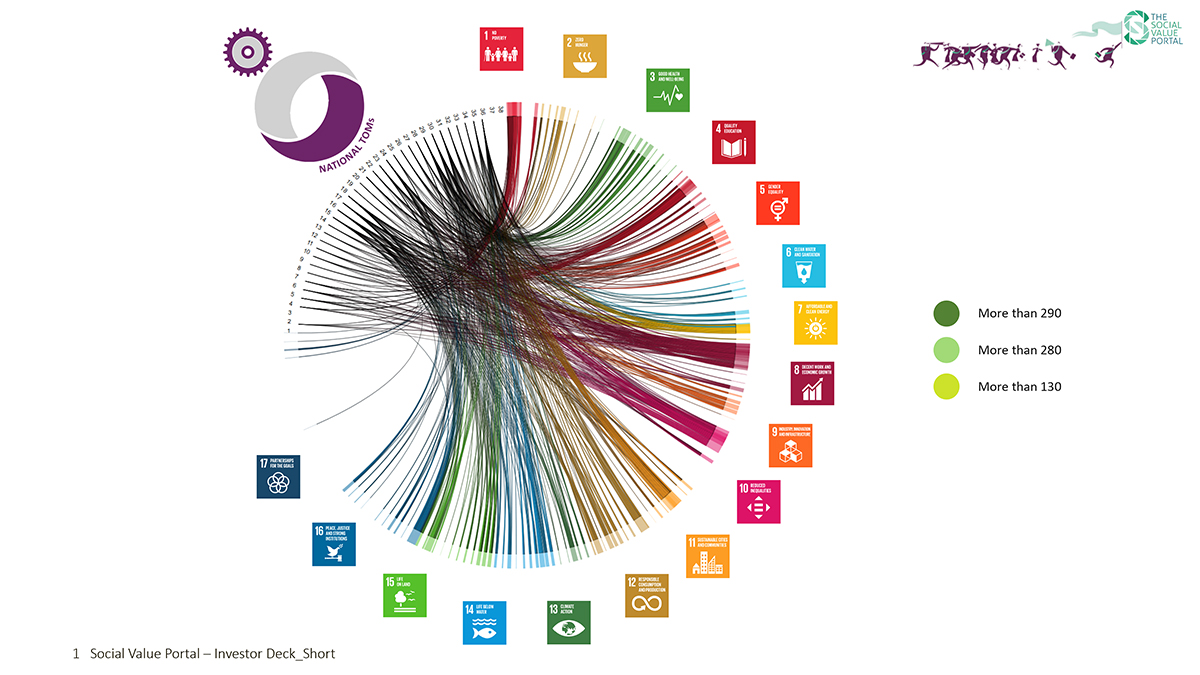Guy Battle, CEO of Social Value Portal, explains how social value has now gone mainstream, including how the Public Services (Social Value) Act has transformed the relationship between the public sector and its suppliers
We have come a long way since January 2013 when the Public Services (Social Value) Act was implemented and there is now clear evidence that the Act is not only transforming the relationship between the public sector and its suppliers but also that it is delivering real additional value for those organisations embedding it properly into how they are doing business.
Leading organisations are now delivering an additional +20% for every pound spent which for a typical council spending £100 million per year could be as much as an additional +£20 million for local communities.
However, councils can and should be doing more to help their suppliers deliver and it is disappointing that so few buyers make it easy to find social value policies and nor do they provide toolkits. A survey carried out by Social Value Portal to assess how easy it was to find and download guidance about social value on councils’ websites found that barely 10% of councils have a social value policy available to suppliers and only 17% mention it in their procurement strategy leaving a staggering 73% who make no mention of social value on their website at all.

But the total opportunity is enormous and with a total local and central government spend of £188 billion per year, this could lead to an additional £36 billion of social value for our communities which is extended even further by an additional £15 billion if social value were to be embedded into planning; Surely a prize worth fighting for?
What is the Social Value Act?
Social Value refers to the wider financial and non-financial value created by an organisation through its day to day activities in terms of the wellbeing of individuals and communities, social capital created and the environment.
Social Value is defined through the Public Services (Social Value) Act 2012 (Act) which came into force in January 2013 and requires all public sector organisations (and their suppliers) to look beyond the financial cost of a contract and consider how the services they commission and procure might improve the economic, social and environmental well-being of an area.
As local authorities are becoming increasingly financially self-reliant and central government budgets are cut, they need to be looking at how to make their limited resources go even further while still maintaining the quality and breadth of services. Social value represents an area where additional community benefits can be derived and may be seen as a complementary activity to other strategies such as commercialisation.
What are the benefits?
The Act provides a significant opportunity for the public sector to engage with its supply chain by rewarding organisations that go beyond the provision of just the core contract requirements to deliver more value for the community. This can deliver solutions that are the most economically advantageous and will also, over the long-term, help to reduce cost and build a more resilient, healthy and economically strong community.
Key benefits can include:
- Better value for money delivering more for the public pound by requiring your suppliers to do more than ‘just’ deliver the core services.
- Increases local spend by rewarding organisations that are local or have a local supply chain, especially SMEs and VCSEs.
- Increases opportunities for disadvantaged people and promotes social mobility.
- Promotes a responsible supply chain by requiring businesses to compete.
- Leads to a cleaner, greener city.
- Builds stronger more resilient communities.
- Leads to greater innovation and long-term thinking.
How can social value be measured?
The National Social Value Task Force sponsored by the LGA and supported by Social Value Portal developed and published the National Social Value Measurement (National TOMs) Framework in 2017. The National TOMs were the culmination of over 18 months consultation with over 40 separate public and private sector organisations designed to help organisations identify and measure the social value being delivered through a contract. The TOMs are built around five Themes, 18 Outcomes and 38 Measures (hence the name TOMs) that reflect activities that a potential supplier could provide in addition to the delivery of the core service that they are being engaged for.
Typically, this might mean jobs for those furthest from the job market, spend with local SMEs, opportunities for voluntary organisations, environmental improvements and volunteering in the community. Each opportunity is given a value that reflects the fiscal and economic benefits for the community and allows organisations to report their total contribution to society through the contract they are delivering.
How is the Act being applied?
There is no one way to embed the Act and organisations should consider what is best for their communities and suppliers to allow them to collaborate in the way that unlocks the most value.

Despite the fact that the Act is specifically aimed at the commissioning and procurement of services contracts (e.g. consulting services, repairs and building maintenance as a ‘service’) falling under the EU Procurement Regulations, many local authorities are choosing to extend the Act to cover all of their tendered contracts (services, goods and works) usually above £100,000. In addition, they are looking at how the Act could be included within the planning process. Across the UK, planning represents an annual opportunity of delivering an additional £15 billion per year.
However, there is an emerging consensus on what good practice looks like and public bodies looking to maximise its steps should consider the following:
1. Social Value Policy
Ensure that council policies, especially those relating to procurement, mention social value and describe how suppliers must consider it within their proposals.
2. Weightings
Ensure that an appropriate and stand-alone weighting is used within the procurement evaluation. Total weightings should be 10-20% requiring bidders to submit a financial proposal (using the TOMs) and a method statement to ensure their supplier has the capabilities of delivering against their pledges.
3. Thresholds
Agree on a threshold above which all procurements contain a requirement for social value (e.g., £100,000). This will ensure consistency across the council and sends a clear message to your suppliers.
4. Build Capacity
Work with your suppliers, especially SMEs and voluntary organisations to help them understand opportunities and provide support to build market capacity.
5. Make it easy!
Make it as easy as possible for suppliers to understand and deliver social value. You should make all of your policies easily accessible, publish supporting information such as needs analysis and provide links to local delivery partners.
Going global
In 2015, world leaders agreed to 17 goals for a better world by 2030. The Global Goals have now been adopted by 193 world leaders and are designed to catalyse global action in order to end poverty, fight inequality and stop climate change. They require the active participation of all sectors of society: governments, businesses, civil society and the general public.
There is a significant overlap between local government priorities and the Global Goals and as a result the LGA passed a motion at its 2019 annual conference in support of the UN Sustainable Development Goals (SDGs) and the role of local government in delivering them.
There is also a clear alignment between the sustainability agenda promoted by the Global Goals and the social value promoted by the National TOMs Framework and organisations delivering social value through the National TOMs are very likely to be contributing to the Global Goals agenda.
For those organisations that are already contributing or want to start to contribute to the Global Goals agenda, the TOMs can help organisations answer the questions: “How Can the National TOMs Contribute to the Global Goals for Sustainable Development?” – and explore how different Measures contribute to specific Goals.
FAQs
Does embedding social value lead to price increases?
If applied well, with the correct weightings and proper education of suppliers there is clear evidence that embedding social value into procurement delivers additional value; there is no evidence that the Act is leading to price increases as long as appropriate balance in weightings is found alongside ‘price’ and ‘quality’.
What about SMEs?
The TOMs provide a level playing field as all bidders are provided with the same list of opportunities, regardless of their size. However, it is essential that local authorities recognise that SMEs have less resources and that they look at way to build knowledge and capacity in the market place.
What weightings should we use?
Weightings should be high enough to send a clear signal to the market that social value is important but not so high that bidders add costs to boost their social value score. 10-20% is presently recognised as good practice.
What happens if a contractor does not deliver?
The key to preventing failure to delivery is to make sure that suppliers do not over-promise in order to win the work. It is, therefore, essential that the tender documents make it very clear that successful bidders will be contractually held to their commitments and that there are a range of remedies available to councils if a contractor fails to deliver including holding back payments for non-delivery.
What can I learn more about the National TOMs
The National TOMs are ‘open access’ and can be downloaded for non-commercial purposes free of charge along with detailed guidance and other support at https://socialvalueportal.com/national-toms/ .
*Please note: This is a commercial profile




![Europe’s housing crisis: A fundamental social right under pressure Run-down appartment building in southeast Europe set before a moody evening sky. High dynamic range photo. Please see my related collections... [url=search/lightbox/7431206][img]http://i161.photobucket.com/albums/t218/dave9296/Lightbox_Vetta.jpg[/img][/url]](https://www.openaccessgovernment.org/wp-content/uploads/2025/04/iStock-108309610-218x150.jpg)






